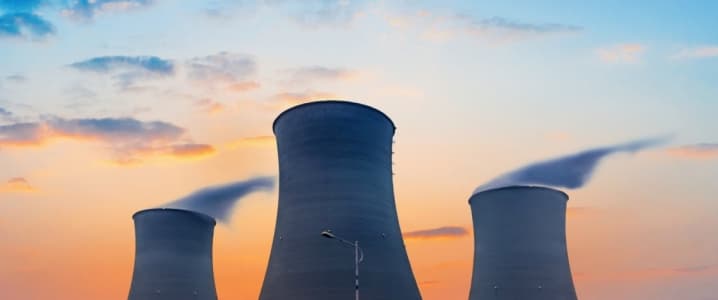The United States was once a projected leader in the nuclear energy race. In the 20th century, the world dreamed of finding a way to provide safe, cheap, and renewable energy, and nuclear power seemed to be the manifestation of those dreams. All of this, however, seems to be coming to an end.
This past week, Toshiba decided to sell its American nuclear power subsidiary at a $6 billion loss. Westinghouse Electric Company, an American company that Toshiba acquired 10 years ago, is in the business of building and constructing nuclear power facilities. This isn’t the first time that Toshiba attempted to offload controlling interest in Westinghouse – all previous efforts, however, have failed.
Many reasons have been cited for this sell-off. Firstly, demand for electricity has been slowing down as of late. Secondly, natural-gas prices have been declining, making it harder to justify the measures necessary to make nuclear power work – one of the primary motivators for these projects was the increasingly high cost of natural-gas. Finally, integration of renewable energy sources (such as wind and solar) have been becoming more prevalent. Again, this makes it harder to justify nuclear energy projects.
However, the biggest barrier to entry for nuclear energy providers is the trade-off between safety and cost. The production of this type of energy can be fast and cheap, but not if companies comply fully with the U.S. nuclear regulatory body. Nuclear energy in America is simply becoming an uneconomic option.
This is problematic on the global scene for a variety of reasons, chief of which is safety standards. The U.S. remains the exemplary model to follow when it comes to regulation of new technologies. If nuclear power in America slows down substantially, the influence the U.S. has over global safety standards wanes, and the world becomes less willing to comply with basic guidelines. Without that scale of market presence from the U.S., the industry can suffer.
This slowdown from the U.S. may be advantageous for state-owned nuclear facilities. Without America as an example, Russia, parts of Asia, and the Middle East become the example to follow – their lack of standards and regulation would be to the benefit of nuclear facilities owned by governments. Related: The Discounts Are Over: U.S. Shale Is About To Get More Expensive
However, many privately owned nuclear facilities simply do not have the capital to sustain these plants, even when the government helps subsidize their operations. This is evidenced by Toshiba’s termination of their Westinghouse project. Projects on the private side take much longer to complete, so that safety concerns change along the way, locking them into a cycle of never ending regulation updates.
In the last 20 years, the U.S. has seen only one new nuclear reactor that is functional, constructed by a government entity – the Tennessee Valley Authority. Further, the Nuclear Regulatory Commission shows that there are only four reactors currently under construction in the entire country. Two would be at the Alvin W. Vogtle station in Georgia, and two at the Virgil C. Summer plant in South Carolina.
These projects are implementing reactors manufactured by Westinghouse. Construction on all four are currently delayed over three years and are billions over-budget. Westinghouse itself was one of the last private companies to be commissioned for the manufacture of nuclear reactors – before over-budget, inefficient projects such as these pushed them into ruin. Westinghouse has said that these four projects, as well as two more in China, will be completed. But it remains doubtful that the dozens of other projects it has been commissioned to complete – and yet to begin – will ever reach fruition.
By Michael McDonald for Oilprice.com
ADVERTISEMENT
More Top Reads From Oilprice.com:
- EIA Reports Minor Build In Crude Inventories, Draw In Gasoline Stocks
- Non-OPEC Compliance Rate Rises To 60%
- Oil To $70? Or Down To $30?



















A minor quibble. You note in paragraph two that Toshiba plans to sell its Westinghouse nucler construction unit after losing $6 billion.
First, Toshiba has indicated no plans to sell Westinghouse for a simple reason. No one knows what it's worth. All we have are accumulating liabilities related to ongoing cost overruns at the two nuclear construction sites in the US that you mentioned.
Second, they did not "lose" $6 billion at their Westinghouse subsidiary.
They wrote off about $6.3 billion (US).
These write offs are of such magnitude that they now threaten the solvency of the entire Toshiba financial entity.
This morning analysts in Tokyo began using the "B" word in relation to Westinghouse, yes, bankruptcy.
This suggests two implications: first it underscores the risk to for profit entities in tering nuclear construction. Second, it raises the question of whether of whether all cost overruns in Georgia and South Carolina will actually be paid by Westinghouse if they actually file chaper 11--a distinct possibility.
Nuclear energy is expensive, dangerous and creates some of the most hazardous waste know to mankind....that must be isolated for thousands of years.
It's way past time to move beyond nuclear energy!